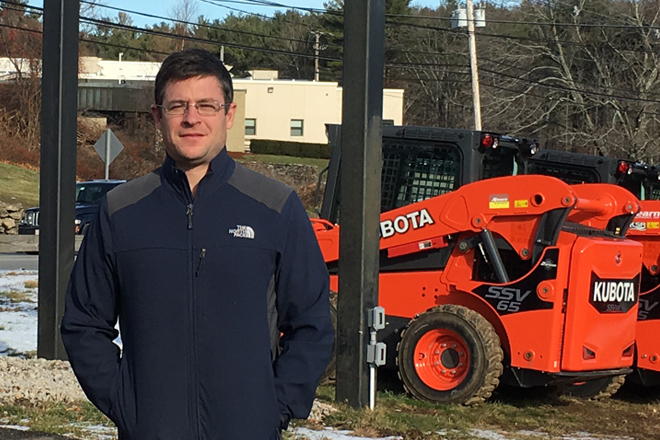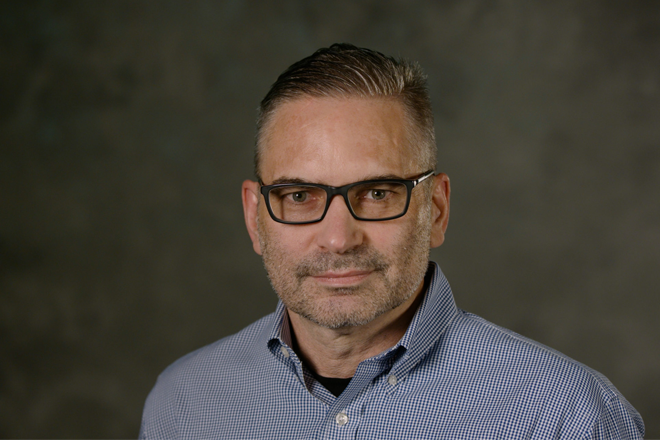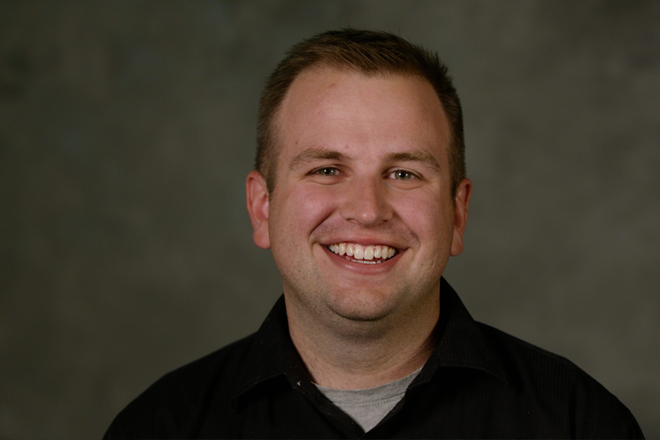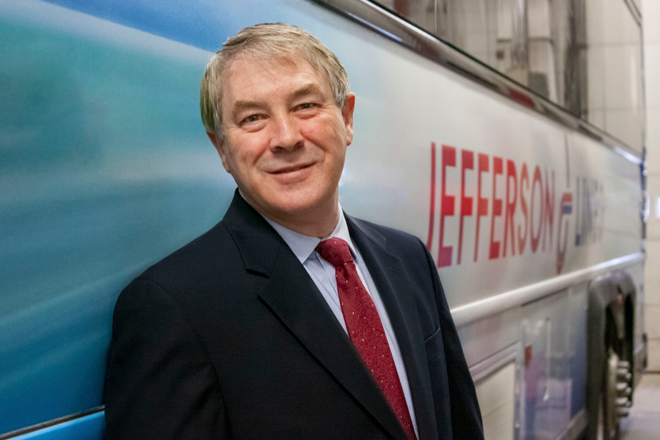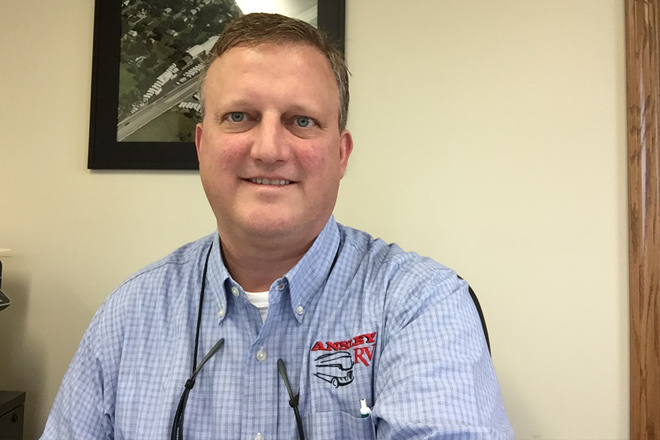How did you and your brother come to own the business?
Jeremy Ahearn: My brother and I are second generation owners of our company. Our parents were the founders of the company and we have been working in the dealership for about ten years now. We’ve recently completed a transition plan of ownership from my parents to us. We’ve settled on an agreement and we’re going to move forward as the future owners of the company. All four of us still play roles in the dealership, which has its moments and an interesting family dynamic.
Why did you decide to seek out third-party advice?
JA: I really think it just came down to some frustration. We’re both fairly young. We’re in our mid-30s. We were really hitting some road blocks as far as how to set up the dealership, how to attack the market, all of the different tools that you need to run the business, we felt like we were inventing it ourselves. We’re not foolish. We know that the dealership model is a model that’s been around for a long time. We really were just seeking people or organizations that could get us ahead of the curve instead of making all the mistakes ourselves for the first time.
When we asked some of the tough questions … I don’t think any of us really had the right answers on some specific, hard questions. Talking to other dealers was a way to certainly learn, but we really weren’t getting the right answers that we were looking for. We weren’t able to match apples to apples with other people in the industry. We’d get half of the right answer, but we couldn’t figure it out completely.
Do you have an example of one of those tough questions that been answered for you in recent years?
JA: Absolutely. We, about five years ago, opened up a rental division where we rent construction equipment. We really struggled with how that operation works both on a daily basis – rental has a large amount of risk and many legal loops that you have to jump through – and also from an accounting standpoint, how you treat the equipment. Are you a rent-to-sell model, or are you a rent-to-rent model? There’s multiple ways to run a rental department and we really struggled in the beginning to define what we were and how we handle it both from a legal standpoint and an accounting standpoint. It would have been overwhelmingly helpful if we could have gotten those answers right at the beginning rather than experience a trial and error method instead.
With that specific answer, our 20 Group definitely helped us. There happened to be another peer dealer who was much larger than us in the rental world. Although they were a smaller dealership than us, they had much more experience in rental. By collaborating with them we were able to both learn the best way to do it and take both organizations’ best methods and directly apply them to our dealership.
Once you decided to work with NCM, did you have apprehensions, or were you excited to get going?
JA: I would say we were 50 percent excited and 50 percent apprehensive. It’s the deal where you walk into the room and nine people know each other and you don’t know anyone and you’re baring some personal information right off the bat. You’re showing your financials. You’re showing some very personal stuff. That can be intimidating, but by that second meeting we had settled in nicely and I love the group that I work with. I now share some of my personal life stories with that group, never mind just our financials, and it’s one of the best things that we’ve done.
How were you impacted early on by those relationships?
JA: In the first year of our relationship – our NCM group meets three times a year – our group leader had pointed out that we had a metric in our financials that was too high and costing us a good amount of profit. That metric was our personnel expense. Basically, we carried a larger staff than maybe we needed to. They were able to point that out relatively quickly when we compared our personnel expense to our peers in the group. It took us probably two-and-a-half years from that point to fix the problem as there was many reasons why that was the case. We have fixed that problem and I can say unequivocally today that we are more profitable, because we fixed this problem than we were before we met NCM.
Have those relationships made a difference as you’ve gone through the process of transitioning your business from one generation to the next?
JA: Yes. We did discuss it in one of our NCM meetings and, again, listening to some other dealers’ input, advice, their own situations that they’re in we realized that other dealerships are going through the same thing, have similar problems, and we talked about some solutions. Although our primary source for the transition was an outside professional, we did receive some knowledge from NCM and from our peer dealers about how to do it, when to do it, what were some of the different ways that it was accomplished which, again, showed us different options.
How do you measure the effectiveness of your involvement in 20 Group?
JA: My brother and I measure our NCM meetings in overall return on investment. NCM charges a fee, and then there are travel fees to be a part of the group, so we want to make sure that every meeting we’re getting a return on our investment, on our money. I have not left an NCM meeting without doubling my money, essentially. NCM has pointed out many ways that we can improve our business, improve our bottom line.
From a financial standpoint that has been a great benefit to our dealership. From a personal standpoint, being able to discuss some of the issues that you’re going through as an owner or a manager of a dealership is helpful to discuss it with other people that are having the same problems in just a social awareness. Just being able to talk about some of the challenges helps in this industry so that we can all be successful.
In addition to 20 Group, Josh decided to take advantage of the Inventory Management course. Why was that important?
JA: Josh and I are very different people. I tend to be much more process oriented than he, and so that plays out in many different strengths and weaknesses in the dealership. Josh, who was in charge of the inventory, really struggled for a while to have good control of it, and that that would frustrate me at times. Josh attended the inventory management course. I think it really opened his eyes to developing a better process with inventory management so that we could be more successful.
He was able to take that knowledge back here and was really talking a language that really resonated with me. A lot of the process orientated things that I enjoy he had now learned and understood better. When sales did not climb as anticipated he was able to react and control our inventory better so it didn’t affect our bottom line as bad as we had anticipated it would.
You mentioned that early next year you’re going to start sending your managers to NCM training. Why is that important to you?
JA: I like the fact that NCM is very industry-specific, so I know that the training is centered around farm equipment parts, farm equipment inventory. Everyone in the room is talking about the same thing so that I know that my manager is going to get the most out of the conversation. We have some young, upcoming talent and we want to keep advancing their knowledge in the industry and this is one of the best ways to do it.
If my people are smarter and understand their roles better then they can certainly impact the business and how we go to market. As this organization grows leadership certainly has an impact, but I can’t teach everything to all of my team. We look for quality, experienced people to help push our dealership forward and we need training resources.
Frankly, just going to trade shows and talking to other dealers doesn’t get into the in-depth training that our people need. NCM is able to fill in those gaps with real life situations and real life financial numbers from our dealership and give my team a direction on how to directly improve the areas that they work in.
How has your experience with NCM improved your management skills?
JA: NCM has given us a total view of how a dealership can be run and should be run. Even just conversing with nine other dealers, there’s many differences in dealerships. Those differences come out in just general conversation. We have learned many different ways to attack problems, to solve situations and to lead our organizations forward into the future. I think that every conversation we have I’m learning about how different dealers attack it and some of the best ways that are either successful or have failed in the past so that I can lead my team better.
[Our group’s moderator], had gone through some personality exercises where we as a group understood our own personal management style and how that might affect the business. We were able to connect our own personal management style directly with financial performance in some instances. That was very helpful to understanding ourselves and how we treat situations.
After our DISC Profile meeting with NCM, we took the DISC Profile back to our dealership and had our entire staff take it. Then we had a couple of training sessions that revolved around the results of those DISC Profiles. Our staff really received that education well. They were able to learn a bit more about themselves and about each other so that when they are working with some of their coworkers they can understand where the other person might be coming from a little bit better.
Is that important in creating a stronger culture?
JA: I think it can only help to understand different points of view, different people’s backgrounds and generally different people’s goals in life. Each of us gets up and goes to work for a different reason. We all have different motivators and different characteristics that can change our emotion and our temperament. Understanding that certainly can help to create an environment where our team is understanding and we’re able to push each other positively rather than negatively. In other words, we know better how to motivate each one of us to get the best results.

